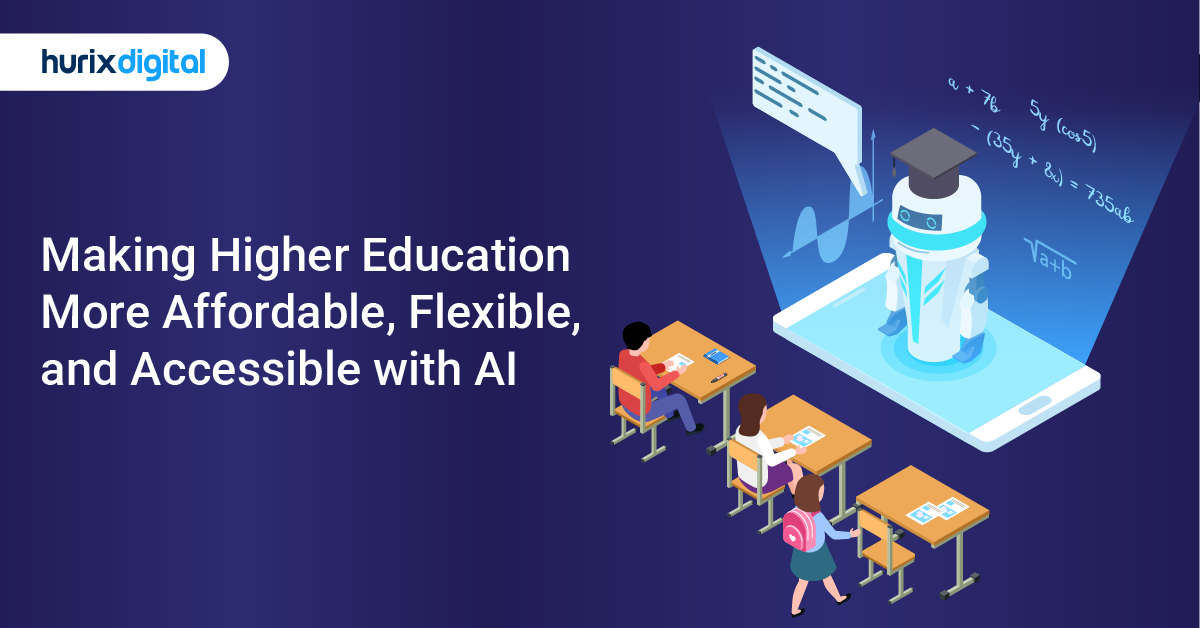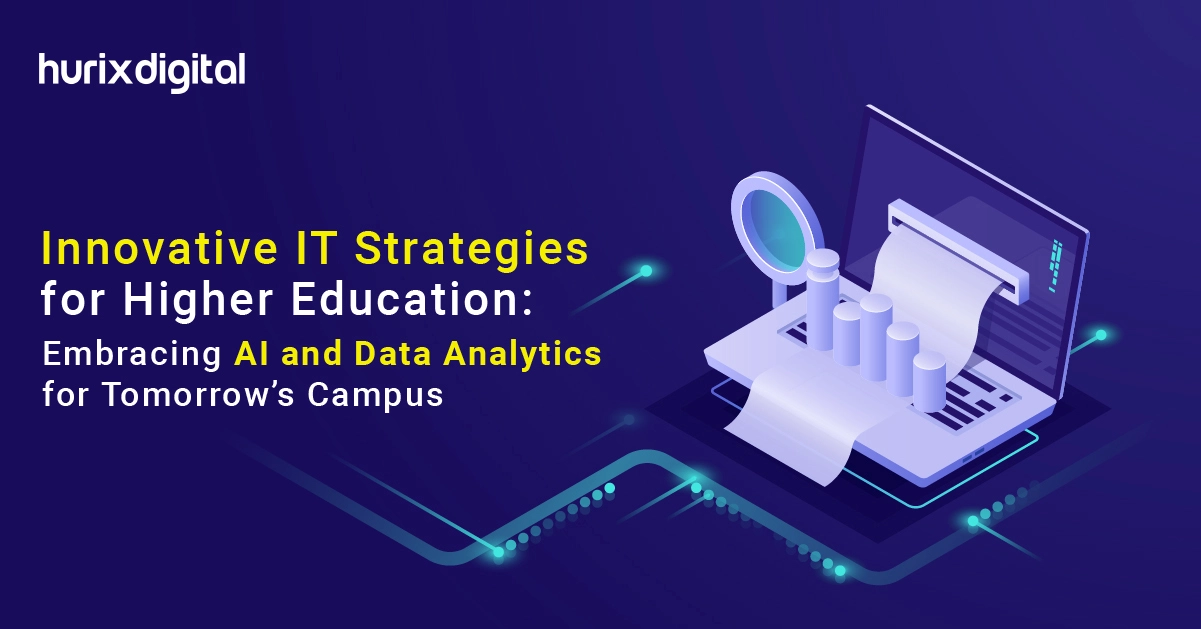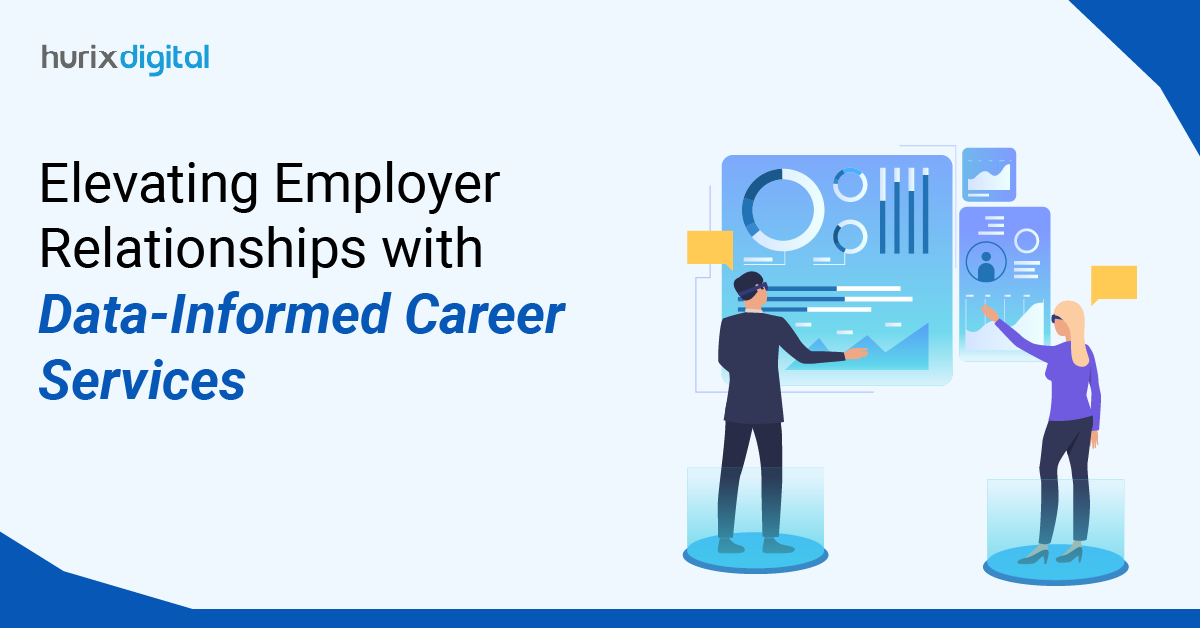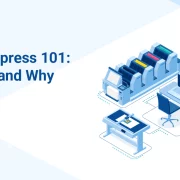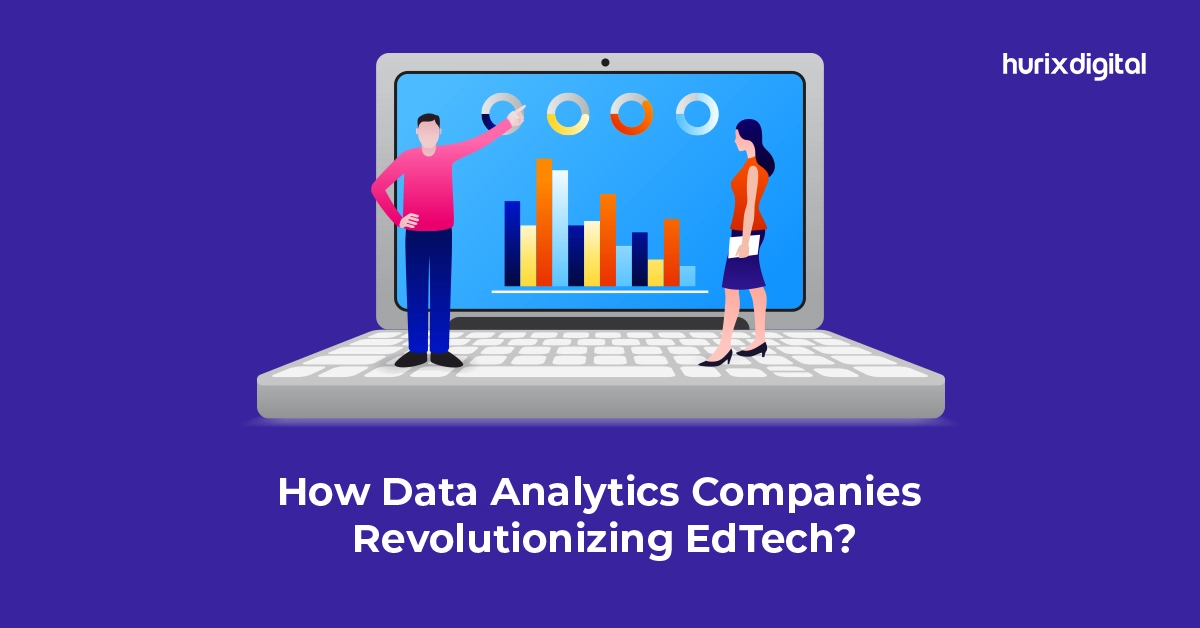
How Data Analytics Companies Revolutionizing EdTech?
Summary
The education technology (EdTech) sector has expanded significantly due to the growing acceptance of digital tools and platforms to improve learning experiences.
Data analytics is at the core of this change as it helps EdTech businesses to understand, customize instruction, and propel better student results. These firms are transforming worldwide education delivery and consumption using cutting-edge data analytics technologies like big data, predictive analytics, and artificial intelligence-powered solutions.
This blog article will show how data analytics companies drive a paradigm change in the EdTech sector, enabling teachers, including students, and redefining the education pathway.
Table of Contents:
- Implementing Data Analytics in the Classroom Environment
- Big Data Analytics in EdTech
- Predictive Analytics: Foreseeing Educational Trends
- AI Data Analytics Transforming Education
- Key Applications of Data Analytics in EdTech
- Benefits of Data Analytics in EdTech
- Challenges and Solutions
- The Future of Data Analytics in EdTech
- Conclusion
Implementing Data Analytics in the Classroom Environment
Data analytics refers to gathering, organizing, learning, and sharing data to assist people in making informed decisions and reaching new insights. It’s vital in many areas, including education, where it helps students learn more about the tools and become more involved.
Data analytics in education examines student grades, attendance, and test scores to adjust learning, identify at-risk students, and ensure students get the most out of their lessons. Data analytics in higher education is important because it helps schools improve teaching methods and rethink learning through real-time data.
For example, prediction analytics can predict changes in registration, which helps with staff and facility planning. Additionally, data analytics can improve student involvement by providing more engaging and valuable learning experiences and fostering teamwork and feedback among students and teachers.
Also Read: Proven 11 Steps For Designing and Developing Effective Physical Education Curriculum
Big Data Analytics in EdTech
Big data analytics is changing the EdTech industry by allowing educational institutions and businesses to collect, analyze, and utilize vast amounts of data to improve learning results.
EdTech firms harness big data analytics to change learning situations, spot at-risk students, and improve general educational success. For instance, prediction analytics can forecast register trends, allowing better resource sharing and staff planning.
Additionally, big data analytics helps ease everyday processes, such as registration and acceptance, to improve the overall experience for students.
Predictive Analytics: Foreseeing Educational Trends
Predictive analytics is a robust ed tool using past data and statistical models to predict student results. It helps tailor learning experiences by finding learning gaps and offering focused solutions.
For instance, prediction analytics can predict student success and attendance, allowing educators to offer quick support and change teaching methods. This method can improve educational results, such as greater student enthusiasm and better academic achievement.
By deploying predictive analytics, educators can meet students to improve learning experiences and drive better results.
AI Data Analytics Transforming Education
AI data analytics is a strong tool that uses machine learning and data analysis to drive ideas and decision-making in education. AI plays a crucial part in data analytics within EdTech, allowing the study of vast amounts of data to spot trends, patterns, and areas for improvement.
For instance, AI-powered customizable learning platforms use machine learning algorithms to tailor learning experiences to individual student’s wants and abilities. Top data analytics companies also incorporate AI to offer flexible, adaptable learning paths and novel tests.
By leveraging AI in data analytics, EdTech companies can enhance student involvement, improve educational results, and boost business efficiency.
Key Applications of Data Analytics in EdTech
1. Personalized Learning
Data analytics helps build unique learning paths for each student, catering to individual skills, flaws, and learning tastes. By studying student data, EdTech companies can offer adaptable learning experiences that change flexibly to the needs of individual learners.
2. Improved Student Outcomes
Data analytics improves school results by studying performance data to find areas for growth. Targeted strategies are applied and tracked to measure their effect on student performance. This data-driven method helps educators adjust their teaching strategies, materials, and tools to support student learning.
3. Operational Efficiency
Data analytics improves resource distribution and content creation, improving productivity and cost savings for EdTech businesses. By studying data on resource usage, content creation, and management processes, EdTech businesses can simplify their routines, reduce costs, and offer a smoother experience for students and instructors.
Benefits of Data Analytics in EdTech
Data analytics in EdTech offers major benefits across various fronts:
- Improved Student Involvement and Performance: By personalizing learning experiences, predictive analytics finding at-risk students, and real-time data analysis, EdTech companies can improve student involvement and drive better academic results. For example, Udemy uses AI data analytics to improve learning results by measuring student involvement.
- Enhanced Teaching Methods and Curriculum Development: Data analytics guides teaching methods, boosts curriculum design, and offers advanced data visualization to help educators understand complicated trends. Lumen Learning gathers data on individual learning needs to provide tailored help.
- Streamlined Administrative Processes: Data analytics predicts registration trends, improves resource allocation, and simplifies data reporting, lowering costs and improving operating efficiency. Moodle synthesizes data from different sources to improve user self-administration.
Challenges and Solutions
1. Common Challenges
Data mining companies in the EdTech field face several challenges:
- Data Privacy and Security Concerns: Ensuring the security, accuracy, and access of private school data.
- Integration with current Systems: Seamlessly combining data analytics solutions with relevant school systems and infrastructure.
2. Solutions and Best Practices
To solve these hurdles, data mining companies can:
- Implement strong data protection and access limits to ensure data privacy and security.
- Develop APIs and interface frameworks to enable smooth merging with current systems.
- Collaborate with educational institutions to understand their unique needs and create personalized solutions.
- Provide regular security checks and data breach reaction plans to ensure compliance with legal standards.
- Offer training and help to schools on using data analytics properly.
The Future of Data Analytics in EdTech
1. Partnerships Between EdTech and Data Analytics Experts
Collaboration between EdTech-based data analytics companies and data analytics experts will continue to unlock the full potential of data-driven solutions. This mix will speed creativity and ensure that educational tools are both cutting-edge and pedagogically sound.
2. Continued Innovation and Transformation
Data analytics will continue to drive growth in the EdTech business, changing the future of education through data-driven results. As AI and machine learning technologies improve, data analytics will be vital in improving educational results, enhancing business efficiency, and personalizing learning experiences.
Also Read: Best Practices in Online Curriculum Development for Higher Education
Conclusion
Data analytics is changing EdTech by adapting learning, better student results, and increasing corporate efficiency. EdTech companies like Hurix Digital leverage data analytics to tailor educational experiences, spot at-risk students, and improve office processes.
As AI and machine learning technologies improve, data analytics will continue to drive innovation in EdTech, changing the future of education. Contact us to explore the latest trends and insights in EdTech data analytics.

Currently serving as the Vice President of Technology Delivery Operations at HurixDigital, a prominent global provider of digital content and technology solutions for publishers, corporations, and educational institutions. With over 16 years of experience spanning EdTech and various domains, I hold certification as a SCRUM Product Owner (CSPO). My expertise includes operations, finance, and adept people management skills.

